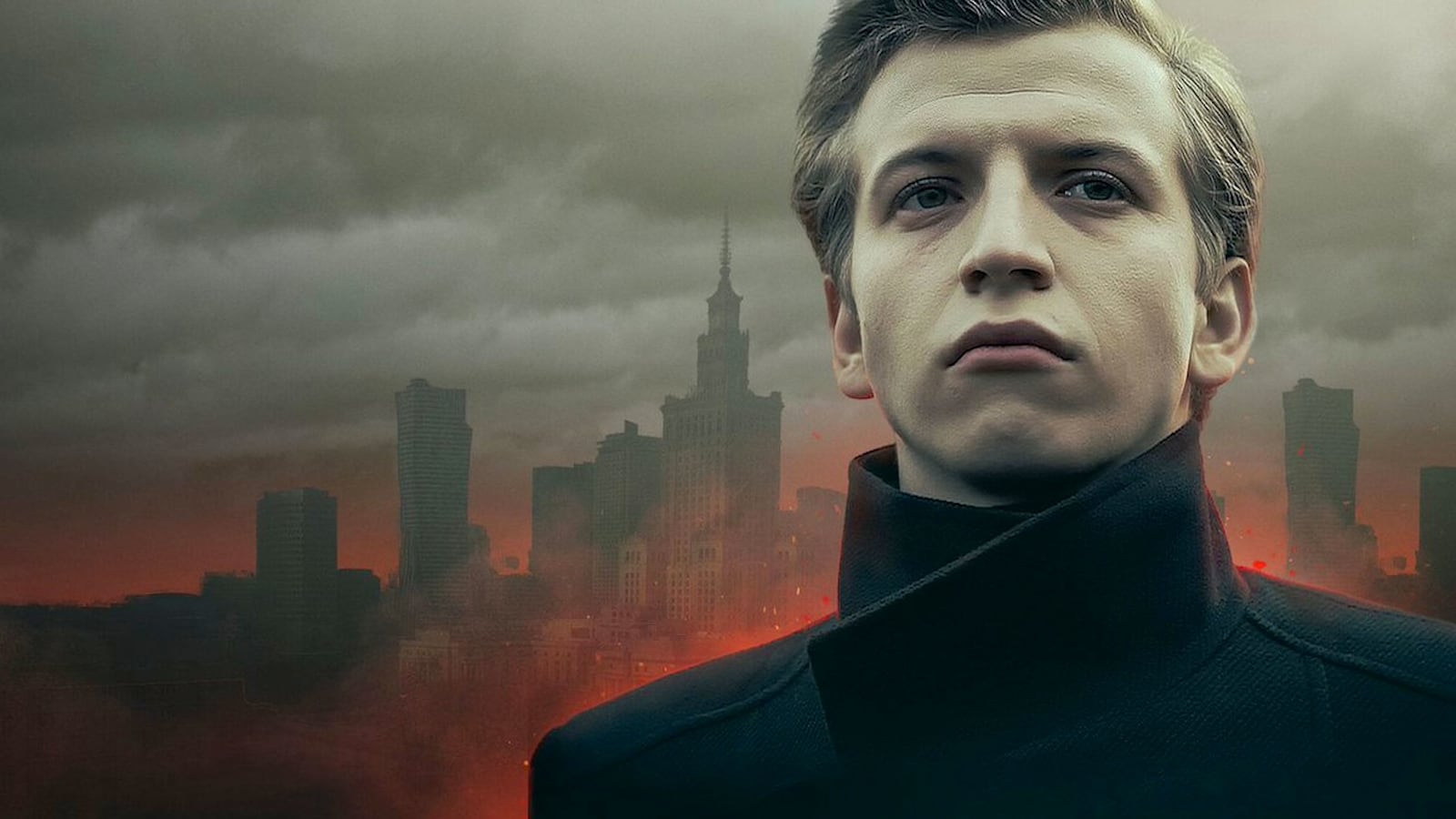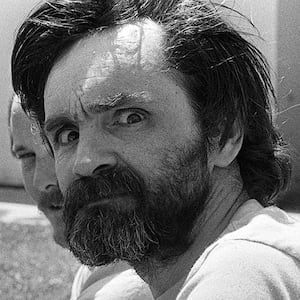“Truth is the most important thing,” says Tomasz (Maciej Musiałowski) midway through The Hater, and of all the falsehoods this habitual liar spews, none is more shameless. Still, while deception is Tomasz’s stock-in-trade, there’s plenty of authenticity to be found in writer/director Jan Komasa’s Netflix feature (premiering July 29), whose release was temporarily delayed because its fictional story wound up echoing a real-life tragedy that shook Komasa’s native Poland.
Three weeks after filming wrapped on The Hater, liberal Gdańsk mayor Paweł Adamowicz was assassinated on stage at a Christmas charity event by a right-wing hatemonger—a shocking crime that eerily echoes the plot of Komasa’s latest, which builds to a similar massacre involving a left-leaning homosexual politician who, by total coincidence, is also named Paweł. That campaigning candidate is not, however, the material’s protagonist; instead, the focus is squarely on Tomasz, a twentysomething student introduced being kicked out of law school for plagiarism. Tomasz is a pretender and a cheat from the outset, and his ensuing story is—like its spiritual predecessor, Komasa’s 2011 effort Suicide Room—about the perils of online life, which affords sociopathic loners and outcasts (as well as profit-minded entities) countless avenues for duplicity and manipulation.
Ambitious, selfish and full of simmering rage, Tomasz is a villain cut from a recognizable and plausible mold, and his lack of compassion and morals is apparent as soon as he’s expelled from school. At dinner with close family friends Robert (Jacek Koman) and Zofia Krasucka (Agata Kulesza)—who are paying his tuition—as well as their daughter Gabi (Vanessa Aleksander), Tomasz senses inauthenticity and, upon departing, temporarily leaves behind a cellphone so he can listen to their candid post-dinner talk about him. It’s not a flattering conversation, as The Hater depicts Robert and Zofia as affluent, arrogant phonies. Nonetheless, such unpleasant eavesdropping does little to stop Tomasz from pining for Gabi, whom he befriends on Facebook and shares an intimate dance with at a nightclub. Even when the promise of a romantic liaison fizzles, Tomasz makes the most of that evening out, boldly introducing himself to—and nabbing a job interview with—Buzz PR bigwig Beata (Agata Kulesza).
Buzz PR is a cutthroat establishment that provides anonymous online disinformation services for its clients—no matter who they might be—and Tomasz fits right in, proving himself an immediate asset by concocting phony smears on an athletic line that puts it out of business. He’s a remorseless and tactical deceiver in a den of destruction where wiretapping, surveillance and round-the-clock propaganda are the order of the day. Beata quickly recognizes Tomasz’s potential, assigning him to work on an account that wants popular mayoral candidate Paweł Rudnicki (Maciej Stuhr) slandered as a refugee-loving lefty intent on destroying Poland through mass Islamization. Bitter over Gabi both turning him down and revealing to her parents that he had dropped out of school, Tomasz is by this point already fueled by rejection and resentment. And when he learns that Robert and Zofia are benefactors of Paweł, his professional and personal impulses dovetail harmoniously—and not for the last time, as he also strikes up a close relationship with Beata that’s underscored by lust, domination and careerist ruthlessness.
Genuine revelation comes when, after disseminating anti-Islamic viral video memes, Tomasz receives a late-night food delivery order from an Arab man with a giant black eye—stark evidence that his virtual shenanigans have in-the-streets consequences. The Hater subsequently tracks Tomasz as he dives head-first into his work, where playing both sides of a conflict in order to spark a conflagration is shrewd strategy. Before long, he’s volunteering for Paweł—and seducing him—in order to increase his prospects for sabotage, all while simultaneously joining an MMORPG video game in order to befriend and recruit white nationalist zealot Stefan “Guzek” Guzkowski (Adam Gradowski) to carry out a horrific attack. It’s a vengeful juggling act performable only by an individual with no empathy or ethics, and director Komasa pays meticulous attention throughout to his main character’s cold, self-serving thought process, regularly fixating on his blank face as the gears whir inside his mind, developing cunning new tactics.
Flashing a friendly smirk that almost masks the void lurking within, Tomasz proves a chillingly nondescript monster. Embodied by Musiałowski with stone-faced poise, he’s a socially competent kid who’s also something of an outsider, furious at the continual dismissals and failures that befall him. The Hater is both a portrait of this unnerving psychopath and of an online culture that serves as a home to extremists, and is easily exploited by those who might use such lunatics for their own devious ends. Throw in a critique of double-faced liberal elites and thuggish conservative creeps, and Komasa’s film is an incisive evisceration of a modern society being torn apart by fanatical elements and discourse, as well as abhorrent forces that view such schisms as opportunities for making money, no matter the harm their conduct causes to innocent people and democracy itself.
In an environment rife with hate—in the streets, at clandestine shooting ranges, in office buildings, on Facebook—Tomasz finds it easy to operate as a puppetmaster, pulling strings with a social media comment here, a shared clip there. The Hater’s patient plotting spins a web of circumstances that compel its subject to make ever-more-catastrophic decisions, and if a few of its storytelling choices are a bit heavy-handed (such as a brief bit involving Sun Tzu’s The Art of War), it understands the many ways our perpetually plugged-in reality makes us vulnerable. Moreover, though the tragedy it predicted took place in Poland, its cautionary-tale lesson resounds as universal—especially considering foreign powers’ online attempts to influence American elections (in 2016 and today), and hate groups’ use of the internet to coordinate and spread their vile ethos.
Shot with assured, clinical reserve, The Hater casts a pall of inexorable doom over its action, and then methodically proceeds toward it without tipping its hand about its ultimate form or outcome. It’s a disaster that unfolds in slow-motion.


